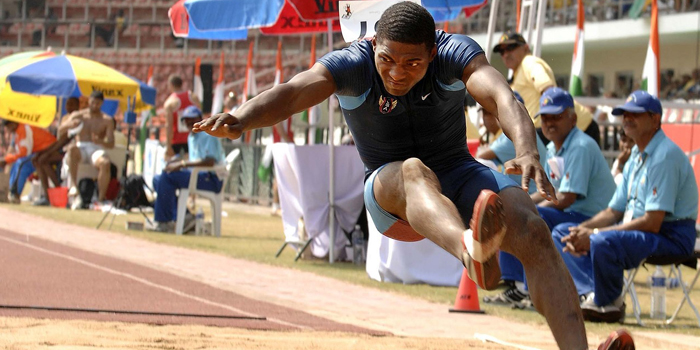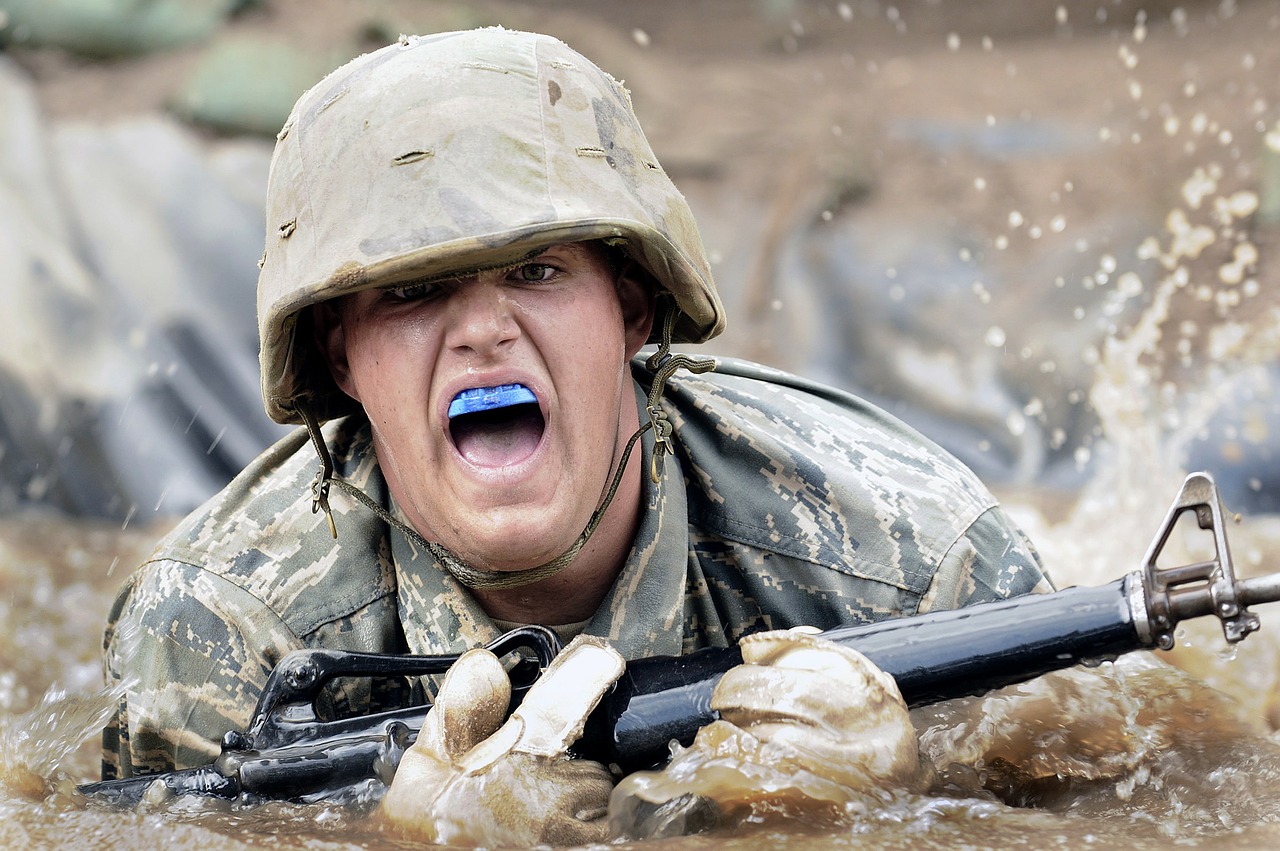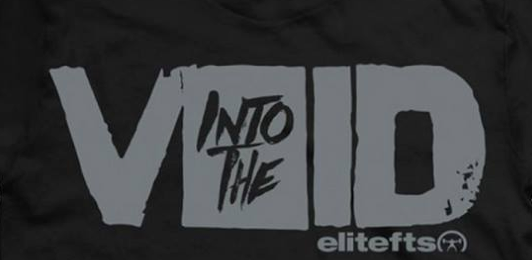
Regardless of the colloquialism that one may prefer, there is no question that there is cause for working with an athlete, law enforcement, or military special operations personnel at a distance. In this way, hands-on supervision does not occur and these individuals’ preparation is either consulted for or constructed at a distance.
The premise for such a service is predicated upon the fact that many athletes, law enforcement and military special operations personnel find themselves in situations in which they either do not have direct access, or any access, to individuals in-house or near-by in whom they place trust in their preparation.
Athletes, at all levels, find themselves in this situation for various reasons- such as:
- An unsupervised off-season period for high school, collegiate, professional, and amateur competitors
- A club situation in which the athletes only get together for competitions
- A school (high school or university) situation in which there are no coaches on staff to do the job
- Open competition sports (such as BJJ, MMA, T&F…) in which the athletes prepare on their own
Law Enforcement (City, State, Federal) and Military Special Operations Personnel are most often in charge of their own non-technical preparation. In addition, so are individuals who are preparing for a selection course in these domains.
It is crucial to understand the global nature of what constitutes performance in any client’s endeavor. In this way, their preparation may be complete and not merely limited to, for example, getting stronger. Otherwise, the opportunity to affect complete preparation, presented by distance coaching, become obviated and relegated to the same limitations that exist in organized sport- which often present detriment to the athletes.
Ironically, when an athlete, for example, contacts someone for distance coaching and only requests strength preparation, that athlete then contributes to their own mismanagement by segregating the training load components. Any athlete, other than pure strength athletes, requires unique movement and sports technical preparation. By creating separation between lanes of preparation one increases the logistical challenge of ensuring their harmonious interplay.
In this way, it’s important to elucidate some of what I know must be taken into account when working with athletes, law enforcement, and military special operations personnel at a distance.
First and foremost, all Olympic, Team, and Combat sport athletes should be prepared from a program management perspective whenever possible. This is done in order to ensure that the preparation of the client is, in fact, complete. And if the opportunity to do so does not exist, it is still crucial to perform the work as if it did.
In this way, whatever isolated realm of preparation is made available to the “distance coach” is undertaken based upon a global recognition of all other realms of preparation that occur outside of the distance coaches’ control. In fact, this rule should be followed regardless of whether one is working in isolation at a distance or on staff somewhere (where equal levels of isolation tend to exist even though everyone works in the same building).
For these reasons, what I appreciate about consulting and distance coaching for athletes, law enforcement, and military special operations personnel is the opportunity to apply a more comprehensive skill set than what any single coaching position in an organization allows; specifically regarding most team sports.
In this way, the divisive lines in organized sport, that are drawn between the specialties of technical-tactical, physical preparatory, and physiotherapeutic lanes, are dissolved and only holistic preparation remains.
RELATED: WATCH: The Red Flags of Online Coaching
I am fortunate in that since 2003 I have had the opportunity to work with a vast array of coaches/leaders of, and individuals competing and preparing for, the following endeavors:
- Track and Field
- Rugby Union
- European Football
- Amateur Boxing
- American Football
- Canadian Football
- Team Handball
- Tag Rugby
- Flag Football
- Ultimate Frisbee
- Ice Hockey
- Water Polo
- Beach Volleyball
- Brazilian Jiu-Jitsu
- Luge
- Mixed Martial Arts
- Road Racing
- Powerlifting
- Olympic Weightlifting
- Strongman
- Wrestling
- General Fitness
- Cross-fit
- Fire Fighters
- Law Enforcement
- Correction Officers
- Federal Air Marshals
- SFAS (Special Forces Assessment and Selection)
- BUD/S (Basic Underwater Demolition SEAL Training)
- Navy SEALs
- Navy Divers
- Air Force Para Rescue
- Swedish SSG (Särskilda Skyddsgruppen) Selection
- Danish Jægerkorpset Selection
- Finnish Utti Jaeger Erikoisjääkärit Selection
- FBI HRT (Hostage Rescue Team) Selection
- Australian SASR (Special Air Service Regiment) Selection
On a personal level, most enjoyable for me, thus far, in this context and regarding working at a distance, has been the complete program management responsibility I’ve had over an amateur boxer, high school water polo team, a club level ice hockey player, and T&F sprinters, throwers, and long jumpers. In this capacity, I’ve had complete autonomy over programming every single aspect of preparation for these competitors.
In my view, not only must programs be tailored according to trainedness, injury history, environmental factors, training facilities, resources, and the therapy options available to each client. The programming must account for off-season training, technical-tactical periods, and competition calendars depending upon client requests.
- Team sport athletes, where applicable, must be prepared according to position and tactical scheme.
- T&F and other Olympic sport athletes must be prepared according to technical event specifics.
- MMA/combat sport athletes must be prepared according to discipline and technical/tactical preferences
- Military Special Operations personnel must be prepared according to technical/tactical specifics, stateside professional development/training schedules and overseas preferences.
- DOD, Government, and Law Enforcement personnel must be prepared according to job specifics and testing requirements
While it may seem obvious when read, the reason why I state that the preparation must be based off specifics that may seem beyond the “wheelhouse” of many individuals who perform “distance coaching” is because the movement structures intrinsic to all endeavors are critical to account for in these individual’s preparation.
- The mechanics of sprinting, versus middle and long distance running
- The mechanics of decelerating and changing direction
- The implications of kinetics for throwing, swinging, punching, kicking, passing, rowing, skating, cycling, swimming, skiing, fast roping, jump landing, treading water, time under canopy, ruck marching…
- All biomotor (propulsion), biodynamic (movement), and bioenergetic (fuel source) specifics to the discipline in which the client is preparing for
…Just some of what must be understood in order to, in my view, comprehensively assist an athlete, law enforcement or military special operations person in their preparation.
Clearly, video capture and analysis must be an option for those clients who take their preparation most seriously; short of the few who already possess technical mastery of their movement responsibilities. Given the current state of most cell phones, no one is without a video camera.
A note on video analysis for those who may not already be aware- when using VLC the “e” key offers slow motion if held down and frame-by frame advance when pressed and released. When using QuickTime Player the right arrow button offers slow motion if held down and frame-by-frame advance when pressed and released and the left arrow button does the same for reversing the video.
If you are someone who assumes responsibility of the preparation of others at a distance than I encourage you to take what I’ve mentioned here into consideration.
For those interested in contacting me for my consulting and distance coaching services, you may find a general overview of services and contact email at this page of athleteconsulting.net.












2 Comments